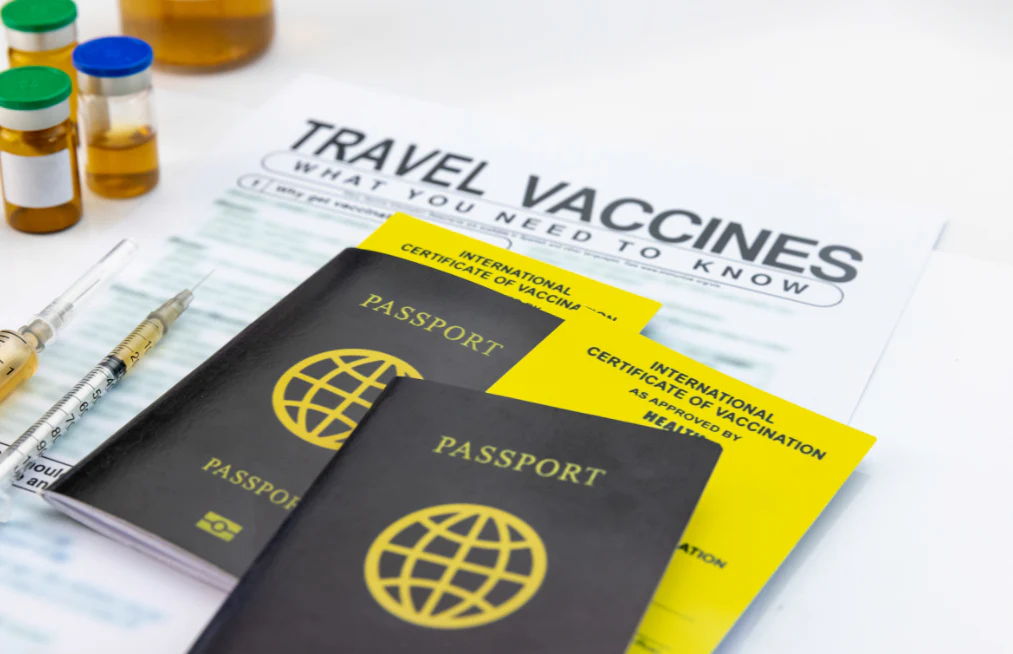Traveling the world has always been a way for individuals to explore new cultures, landscapes, and experiences. However, the rise of global tourism has not been without challenges. Among these, Travel vaccines have played a pivotal role in ensuring the safety and health of international travelers. This article delves into the fascinating history of travel vaccinations and how they’ve shaped the way we explore the world today.
The Origins of Vaccination: A Historical Perspective
The concept of immunization dates back centuries, with early practices observed in ancient civilizations. However, the formal foundation of vaccinations can be attributed to Edward Jenner’s development of the smallpox vaccine in 1796. Smallpox, once a devastating disease, had a profound impact on populations worldwide, and Jenner’s innovation became the cornerstone of modern immunology.
With the rise of global exploration in the 19th century, travelers carried more than just goods; they also transported diseases. The need for protection became evident, leading to the development of vaccines that catered specifically to diseases prevalent in foreign lands.
The Role of Cholera Vaccines in Early Tourism
One of the first vaccines specifically tied to travel was the cholera vaccine, developed in the late 19th century. Cholera outbreaks were common in regions frequented by European colonizers and traders, particularly in Asia and Africa. By the early 20th century, cholera vaccines became a critical tool for safeguarding travelers venturing into affected areas, marking a significant milestone in the history of travel vaccinations.
Mid-20th Century: The Expansion of Travel Vaccines
The mid-20th century saw a surge in global tourism, facilitated by advancements in transportation. As air travel became more accessible, so too did the spread of diseases like yellow fever, typhoid, and polio. Vaccination programs were not just recommended but often mandated for international travelers.
Yellow Fever and the Introduction of Vaccination Certificates
In 1937, the first effective yellow fever vaccine was introduced. Given the prevalence of the disease in tropical regions of Africa and South America, the vaccine quickly became a requirement for travelers. The introduction of the International Certificate of Vaccination or Prophylaxis (ICVP), colloquially known as the “yellow card,” standardized the process of documenting immunization status, a practice that remains relevant today.
Polio and Global Eradication Efforts
Polio vaccination campaigns in the 1950s and 60s not only targeted endemic regions but also ensured that tourists traveling to affected areas were protected. These efforts demonstrated the dual benefit of travel vaccinations: protecting individuals while contributing to global eradication efforts.
Modern Travel Vaccines: Tailored Protection for a Globalized World
The modern era of travel vaccinations reflects the intricacies of a globalized world. Vaccines are now tailored to address specific risks associated with regions, ensuring travelers are prepared for the unique health challenges they may face.
Hepatitis A and B Vaccines
Hepatitis A and B remain significant concerns for travelers, particularly those visiting regions with poor sanitation or limited access to medical care. These vaccines, introduced in the late 20th century, have become standard recommendations for many international travelers, protecting against severe liver diseases.
Rabies and Adventure Tourism
As adventure tourism gained popularity, the risk of rabies exposure increased, particularly in countries where stray animals are common. The rabies vaccine, while initially developed for domestic purposes, became a critical tool for protecting tourists engaging in high-risk activities.
Typhoid and Paratyphoid Vaccines
Travel to areas with limited access to clean water and sanitation often necessitates typhoid and paratyphoid vaccinations. These vaccines have evolved over time, with modern formulations providing broader protection and fewer side effects.
The COVID-19 Pandemic and the Role of Vaccines in Tourism
The recent COVID-19 pandemic underscored the importance of vaccines in enabling safe travel. The development of multiple COVID-19 vaccines in record time showcased the power of scientific innovation. Governments worldwide implemented vaccine requirements for international travelers, emphasizing their role in controlling the spread of infectious diseases.
This era also introduced the concept of digital vaccination certificates, such as the European Union’s Digital COVID Certificate, paving the way for a more streamlined approach to verifying immunization status.
Travel Vaccinations and Public Health: A Symbiotic Relationship
The impact of travel vaccines extends beyond individual travelers; they contribute significantly to global public health. By immunizing travelers, we reduce the risk of disease transmission between regions, supporting broader containment and eradication efforts.
Global Tourism and Disease Surveillance
Vaccination programs for travelers have also improved global disease surveillance. Travel clinics and health authorities play a crucial role in monitoring outbreaks, ensuring timely updates to vaccination recommendations.
Education and Awareness
Travel vaccination campaigns have raised awareness about the importance of immunization. They serve as a reminder of the interconnectedness of global health and the role we all play in preventing disease.
What the Future Holds for Travel Vaccines
The future of travel vaccinations is promising, with ongoing advancements in vaccine technology. mRNA vaccines, for example, have shown immense potential in addressing emerging diseases. As tourism continues to evolve, so too will the strategies to ensure the health and safety of travelers.
Customizable Vaccination Solutions
The advent of personalized medicine could lead to tailored vaccination regimens based on individual travel itineraries, health profiles, and genetic predispositions.
Enhanced Vaccine Accessibility
Efforts are underway to improve access to vaccines in remote regions, ensuring that both locals and tourists are protected. Mobile clinics, telemedicine consultations, and global partnerships will play a pivotal role in this endeavor.
Conclusion: Why Travel Vaccines Are Essential
The history of travel vaccinations is a testament to humanity’s resilience and adaptability. From the early days of cholera and smallpox to the modern fight against COVID-19, vaccines have been instrumental in shaping the way we explore the world. They ensure that tourism remains a safe and enriching experience for all.
At Emcare Travel Clinic, we are dedicated to helping travelers make informed decisions about their health. Our team provides comprehensive vaccination services tailored to your destination and needs. Whether you’re embarking on a tropical adventure or a cultural exploration, let us be your partner in travel health.
For more information about technology visit Relxnn









